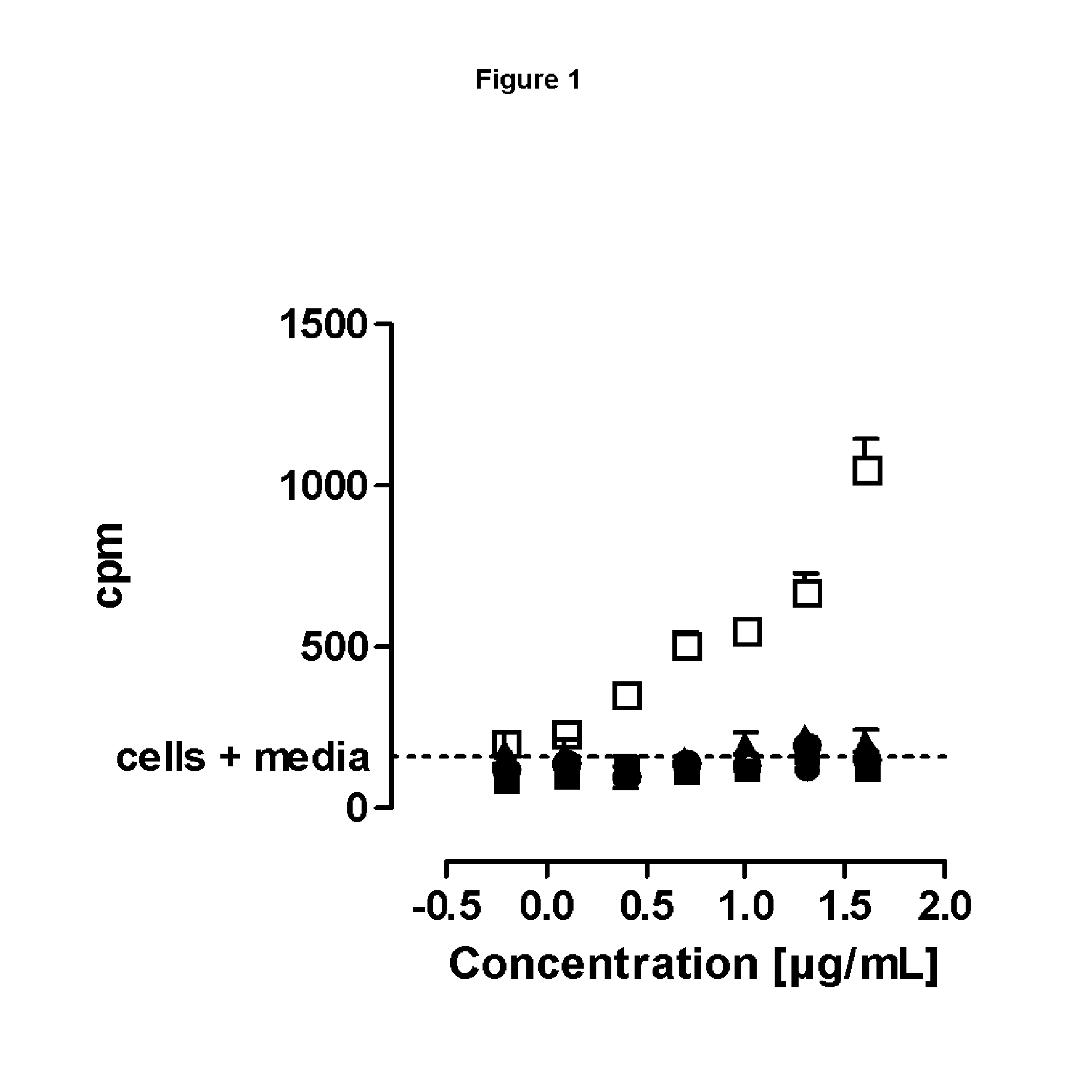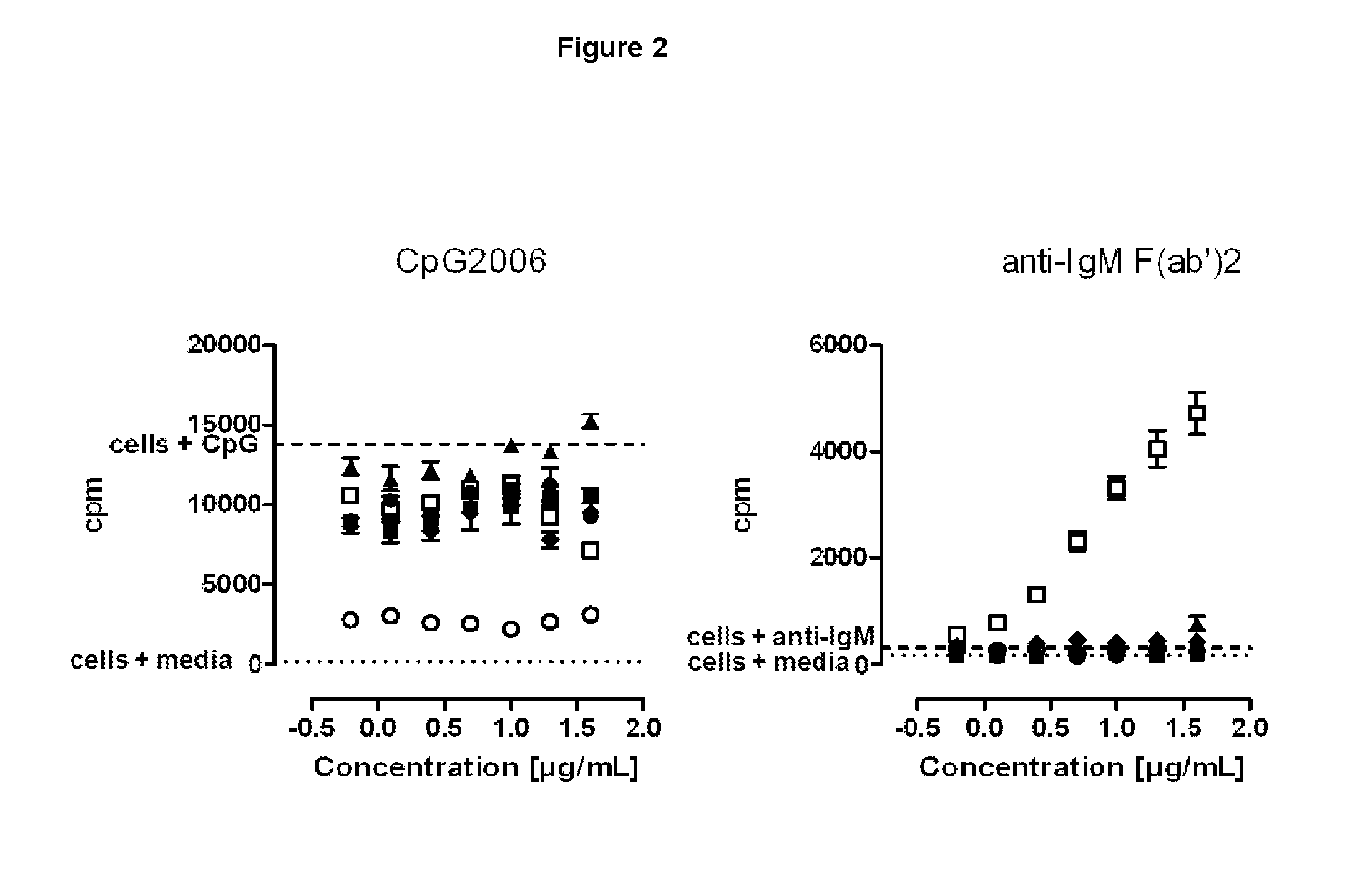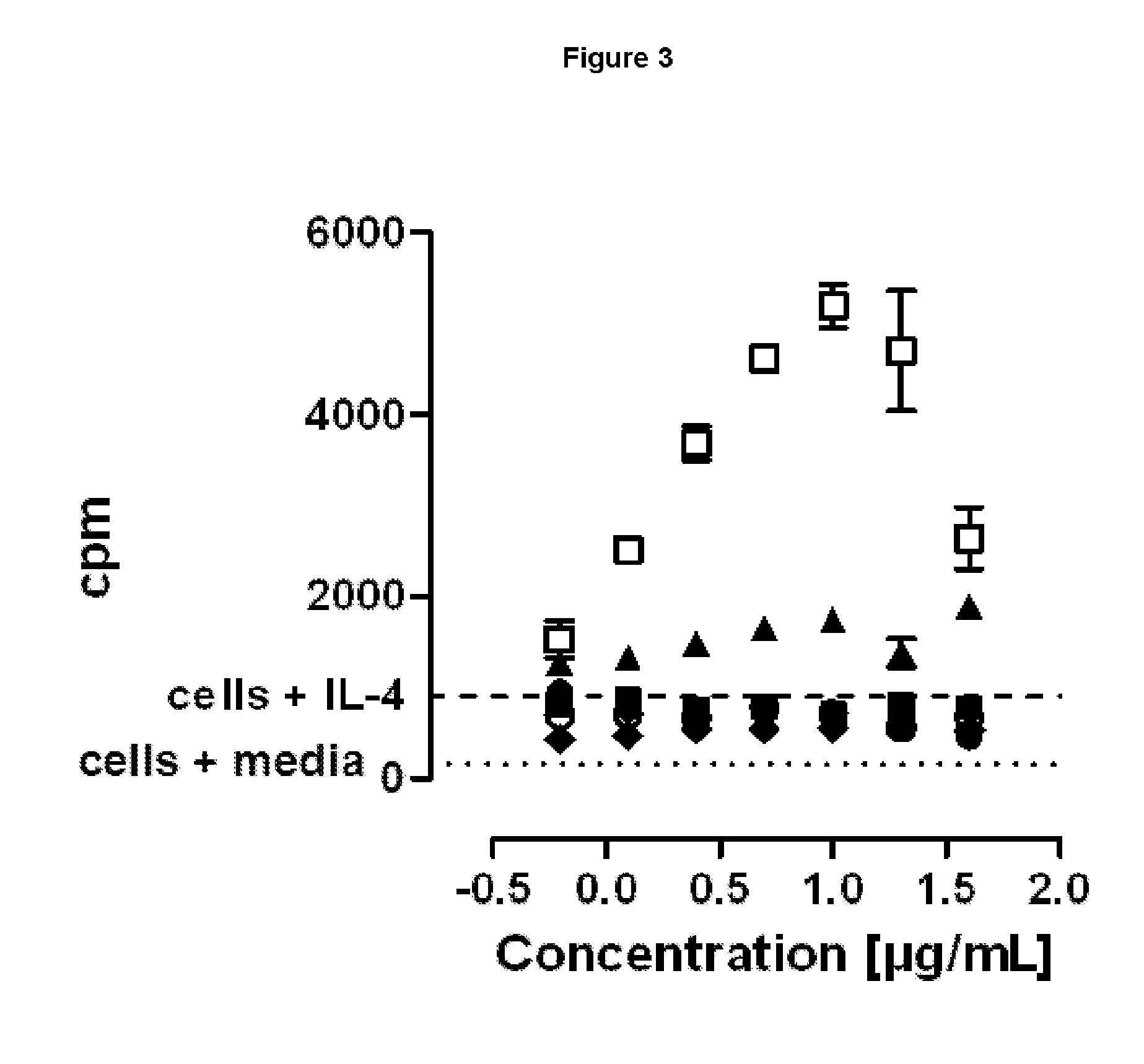SILENT Fc VARIANTS OF ANTI-CD40 ANTIBODIES
an anti-cd40 and silent fc technology, applied in the field of silent fc variants of anticd40 antibodies, can solve the problems of large unmet need for more efficacy, cnis cannot replace alternative primary immunosuppression, and the risk of progressive multifocal leukoencephalopathy is high
- Summary
- Abstract
- Description
- Claims
- Application Information
AI Technical Summary
Benefits of technology
Problems solved by technology
Method used
Image
Examples
example 8
Toxicology Results
[0285]The primary objective of the toxicology study was to determine the toxicity of mAb1, following once weekly intravenous administration to the cynomolgus monkey for 5 weeks (6 test item applications). The non-silent (ADCC) version of this antibody (Chir12.12) was also used in order to compare the effects of an ADCC-active antibody with the ADCC-silent version (mAb1).
[0286]In addition, animals were immunized with KLH in order to evaluate the efficacy of both anti-CD40 Abs.
[0287]There were no mortalities or changes in body weights, clinical signs, and estimated food consumption attributable to treatment with mAb1 or Chir12.12. Local reactions at KLH injection sites were comparable in all groups.
[0288]Also, there were no test item-related findings in ophthalmic and cardiovascular investigations.
[0289]In hematology a slight but statistically significant decrease in the percentage and absolute numbers of basophils was observed in mAb1- and Chir12.12-treated animals:...
example 9
Additional In Vitro Profiling of mAb1
[0298]The binding and functional cross-reactivity of mAb1 was determined between human, Rhesus and Cynomolgus leukocytes. Table 10 shows a direct comparison of the binding EC50s for mAb1 in all three species.
TABLE 10Human and NHP cross-reactivity of mAb1.AssayHumanRhesusCynomolgusCD40 binding0.26, 0.280.22 + / − 0.033 0.3, 0.24(CD20+ B cells -(n = 6)FACS) (EC50, μg / ml)CD154 inhibition0.058, 0.0750.03 + / − 0.0170.015, 0.02(hu B cells & PBMCs)(human tonsil(n = 6)(PBMCs)(IC50, μg / ml)B cells)(PBMCs)
[0299]mAb1 binds to CD20+ cells (B cells) of all three species with comparable EC50. Additionally, mAb1 could inhibit CD154+IL-4 induced proliferation of human tonsil B cells as well as PBMCs from Cynomolgus and Rhesus. Collectively these results indicated that the ability of mAb1 to bind CD40 and inhibit CD154-induced proliferation of human B cells or non-human primate PBMCs was very similar. The availability of in vitro receptor occupancy (RO) data and func...
example 10
Transplant Study
[0301]Combination treatment with mAb1 (30 mg / kg i.v.) and Cyclosporine A, 20 mg / kg orally during allograft kidney transplantation resulted in a significant prolongation of the survival of the 6 animals involved in the study. The grafts were functional during >91*, 31, >92*, >92*, >98* and >98* days (mean: >83.6 days) in animals #5529, #5533, #5523, #5524, #5536 and #5538, respectively (* end of protocol). The survival in untreated animals (or treated with sub-therapeutic IS-doses) ranged from 7-10 days (historical data).
[0302]Animal #5533 was euthanized 31 days post-transplant, due to acute kidney failure and anuria. This pathology appeared after maintained hypertensive period and anaesthesia for biopsy collection.
Monitoring Post-Transplant
(a) Creatinine (SCrea) and Urea (SUrea) Serum Concentrations
[0303]SCrea was the main parameter used for the evaluation of the kidney function. In all 6 animals, SCrea levels increased above the baseline levels one day...
PUM
| Property | Measurement | Unit |
|---|---|---|
| temperature | aaaaa | aaaaa |
| temperature | aaaaa | aaaaa |
| concentration | aaaaa | aaaaa |
Abstract
Description
Claims
Application Information
 Login to View More
Login to View More - R&D
- Intellectual Property
- Life Sciences
- Materials
- Tech Scout
- Unparalleled Data Quality
- Higher Quality Content
- 60% Fewer Hallucinations
Browse by: Latest US Patents, China's latest patents, Technical Efficacy Thesaurus, Application Domain, Technology Topic, Popular Technical Reports.
© 2025 PatSnap. All rights reserved.Legal|Privacy policy|Modern Slavery Act Transparency Statement|Sitemap|About US| Contact US: help@patsnap.com



